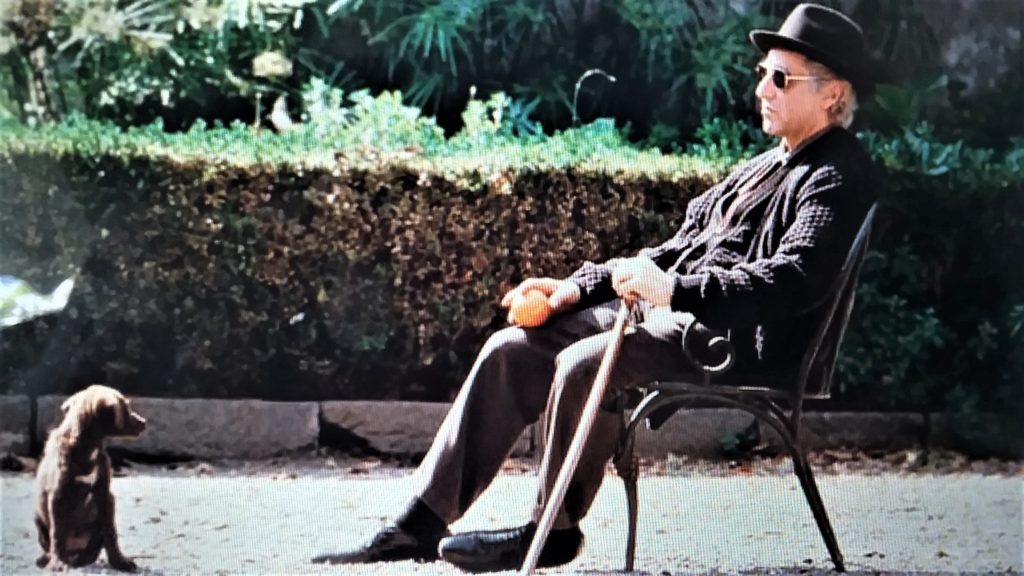
(For the audio version of this blog, please visit: http://brothersinchristcmf.org/wp-content/uploads/2022/09/Mass-Blog-for-the-25th-Sunday-in-Ordinary-Time-2022.mp3)
Humanity’s worst vice has always been envy of God’s power. That desire not only never ends well, it never ends. That’s the moral of the cinema’s classic Godfather saga. Michael Corleone—heir to his father’s crime kingdom—starts out as a reluctant heir to his father’s power over enemies and is eventually drawn wholeheartedly into it. He gradually commits more and more unspeakable crimes against humanity while assuming his father’s role as head of “The Family.”
At one point he thinks he might be able to escape this quagmire into which he was drawn, but then, when he thinks he’s out, as he famously says … “They pull me back in!”
The final installment, Godfather III, ends as an old and tired Michael Corleone gazes outward onto the world that created him, then looks back into his own soul, sorrowful for his misspent life. He’s cursed by the kingdom he chose. It leaves no room for atonement, and a concluding coda explains the regret that underlies this family curse:
“When the Sicilians wish you ‘Cent’anni’ … it means ‘for long life.’ … and a Sicilian never forgets.”
Or forgives, according to Director Francis Ford Coppola. He once explained Michael’s fate to an interviewer: “For his sins, he has a death worse than death.”
That is the kind of hell we contemplate through this Sunday’s readings. First, the prophet Amos speaks to us as if we were old Michael Corleone, contemplating our crimes (Am 8:4-7):
Hear this, you who trample upon the needy and destroy the poor of the land! … The LORD has sworn by the pride of Jacob: Never will I forget a thing they have done!
Thank God for Paul, who in our second reading from his letter to Timothy (1 Tm 2:1-8), guides the new Church’s leaders away from coveting God’s judgment seat and toward a life imitating their Master’s desire to forgive.
First of all, I ask that supplications, prayers, petitions, and thanksgivings be offered for everyone, for kings and for all in authority, that we may lead a quiet and tranquil life in all devotion and dignity. … It is my wish, then, that in every place the men should pray, lifting up holy hands, without anger or argument.
Finally, through the parable of the steward whose dishonesty curses him to a long life among others like him who know nothing of the tranquility or dignity Paul encourages, Jesus describes the moral of this man’s Godfather-like saga (Lk 16:1-13):
“If you are not trustworthy with what belongs to another, who will give you what is yours? No servant can serve two masters. He will either hate one and love the other, or be devoted to one and despise the other. You cannot serve both God and mammon.”
The good news is, God offers us forgiveness and release from our own hell of endless regret and opens the door to the peace of mind that comes with a new and eternal beginning. The first step outside ourselves is ours.
–Tom Andel